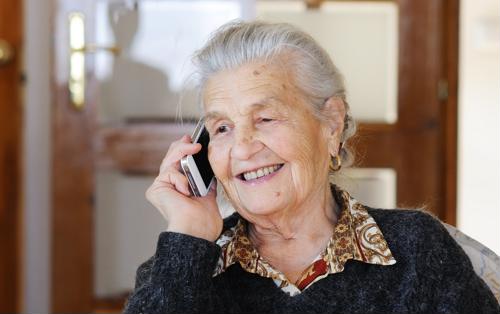Understanding the Generational Differences of Your Patients
By: Nextech | March 6th, 2015



Any individual who has spent a number of years as a medical professional will tell you that no two doctor-patient relationships are going to be exactly the same. Working in health care, you have the opportunity to interact with individuals from all backgrounds. So in order to provide the appropriate type of care, you'll need a varied and flexible skill set as a provider. Among the largest determining factors in how you interact with a patient is his or her age. Young patients or children will require a different sort of approach than adults, as will senior citizens. If your practice treats a wide range of patients, than it is particularly important to understand generational differences.
 Patients from different generations will experience care differently.
Patients from different generations will experience care differently.Have a diverse staff
Admittedly, this particular piece of advice may not be possible for all practices to incorporate. If you run a very small operation and only have a few people comprising the total of your staff, it may be hard to strive for diversity. Still, if you have five or more individuals working in your practice, you should attempt to hire from a diverse range of age groups. According to the director of the pediatric residency program at Advocate Hospital, Frank Belmonte, we are currently living in the first ever period when four generations are working alongside one another in the workforce. Modeling this in your own practice can be beneficial because individuals may be more trusting and receptive of medical professionals in their own age group. Do keep in mind that working with people of varied generations will present its own challenges, as the Chamber of Business & Industry for Centre County in Pennsylvania recently tweeted:
Four generations are now in the workforce. How can they all get along? An upcoming program has answers http://t.co/cgBPxawX81
— CBICC (@CBICC) February 19, 2015
Offer assistance with technical aspects
As we move further into the age of advanced technology, medical practices are experiencing a continued rise in patient empowerment. While this is an extremely beneficial thing for both the individual receiving care and health care provider, it may not be received smoothly by all patients. When dealing with older or less technically inclined patients, make sure that your practice takes the time to explain to them new features that are available for management of their care. For example, Nextech's electronic medical records software offers a fully functional HIPAA-compliant patient portal. When your patients come into the office next, take some time to show them how to log in to the portal, and be sure to point out the features and functions they can use to have more power over their care.
Consider varying patient needs
When it comes to understanding and adapting to generational gaps in your patients, the small things really can make a difference. For example, patients of older ages may have a harder time reading and filling out forms with small type, so you will want to keep larger print copies of these documents on file. If all of these documents are done digitally, be ready to offer assistance in adjusting the screen zoom or backlighting. On the other hand, younger patients are more likely to show an interest in any digitally-based referral or patient loyalty programs that you offer.
HERE ARE SOME RELATED ARTICLES YOU MAY FIND INTERESTING
Practice Management | Patient Engagement | Patient Care
A Practice Owner’s Guide to Navigating Difficult Patient Encounters
By: Nextech | January 12th, 2026
Practice Management | Patient Engagement | EHR | Referrals
A Playbook for Increasing Referrals at Your Specialty Practice
By: Nextech | December 22nd, 2025